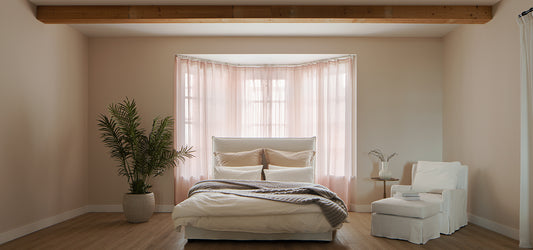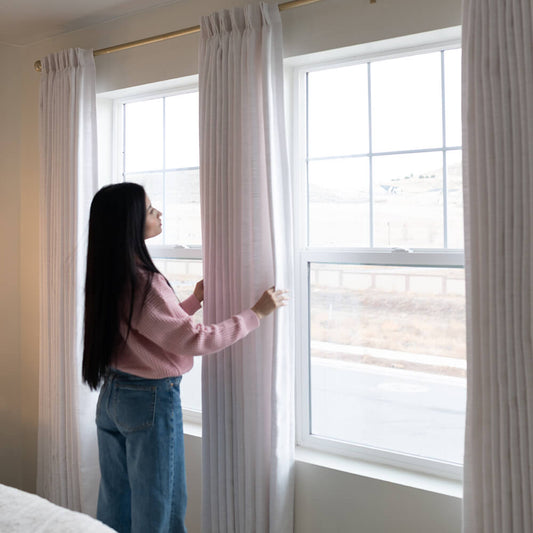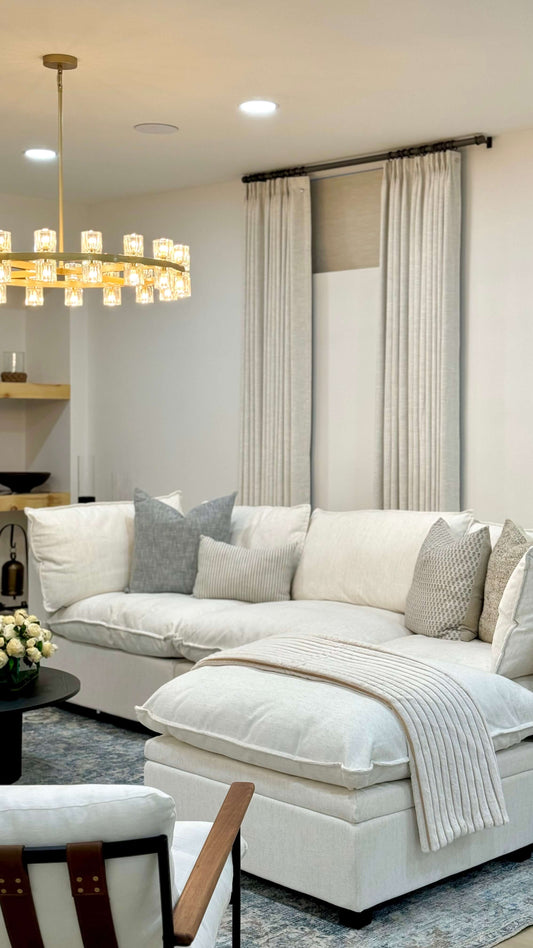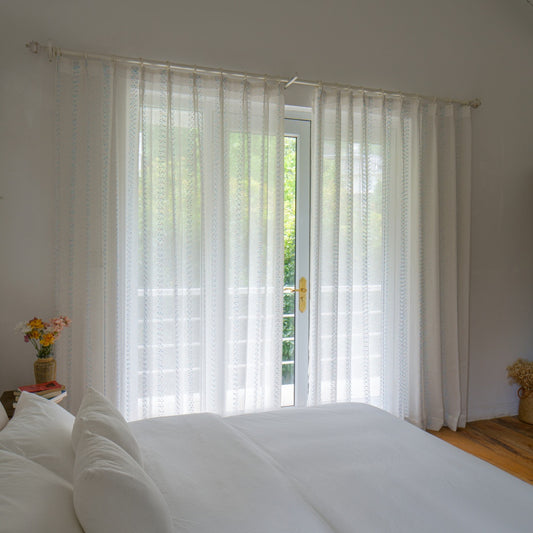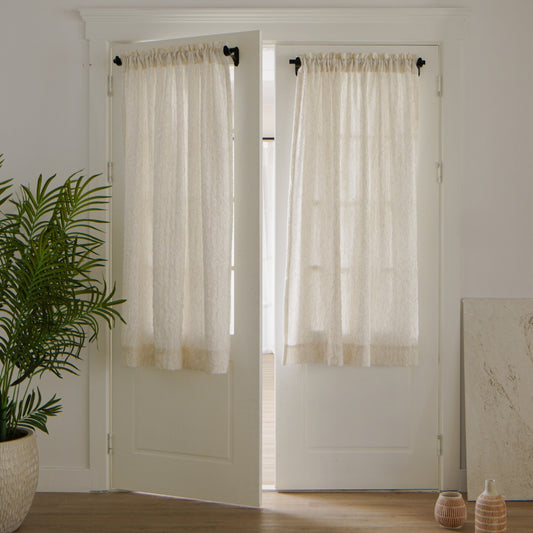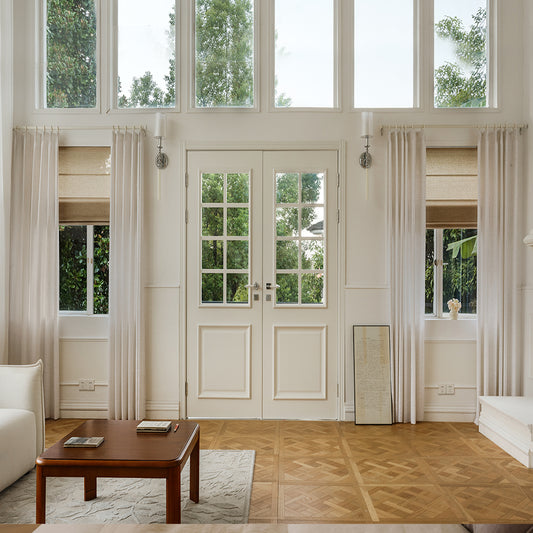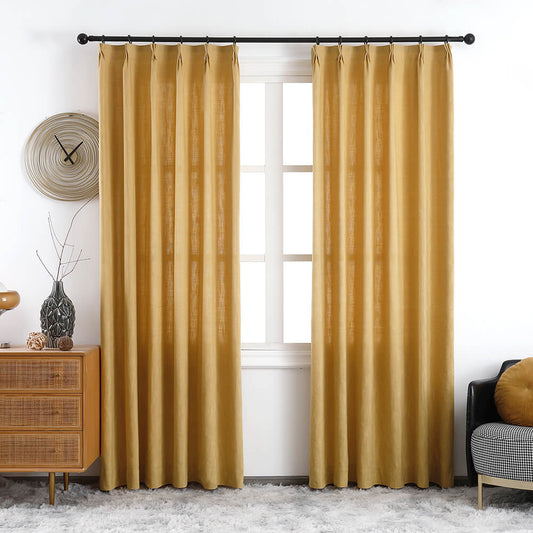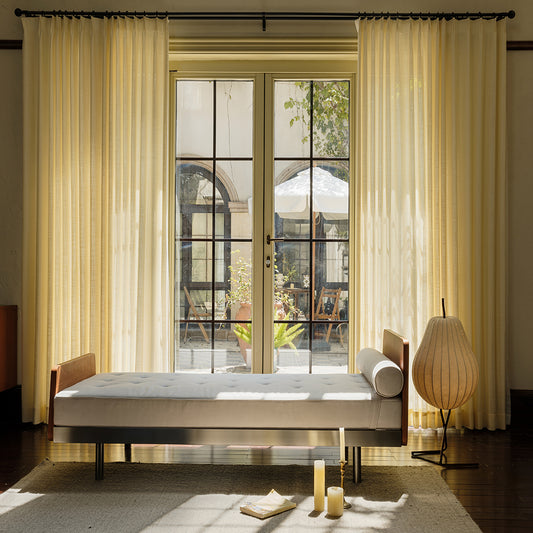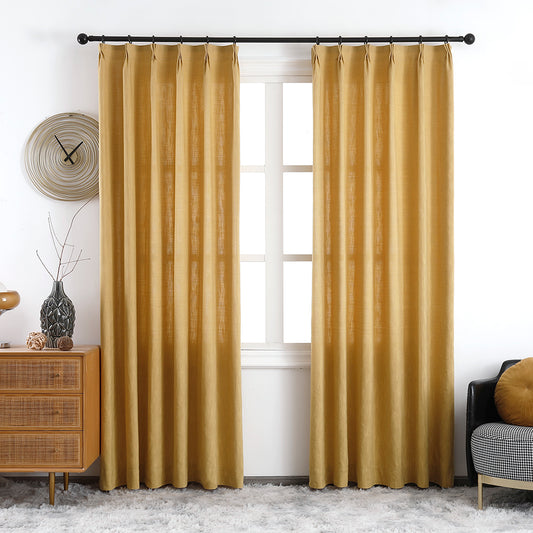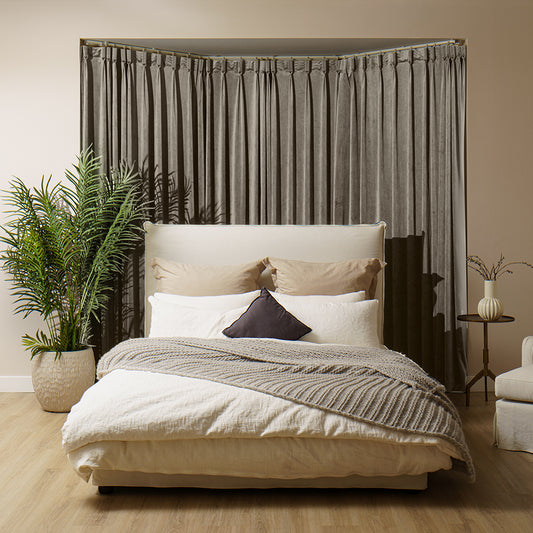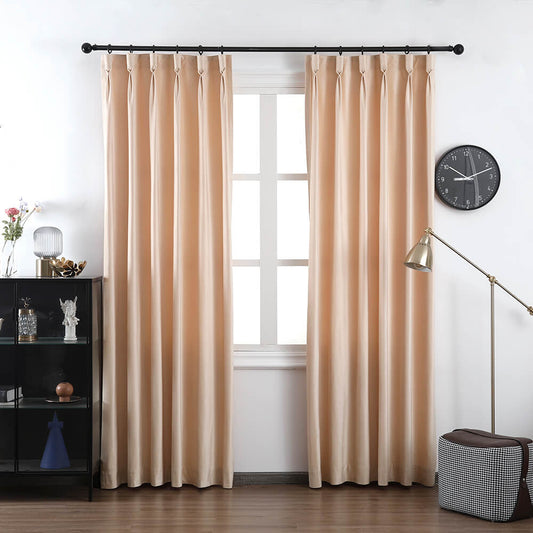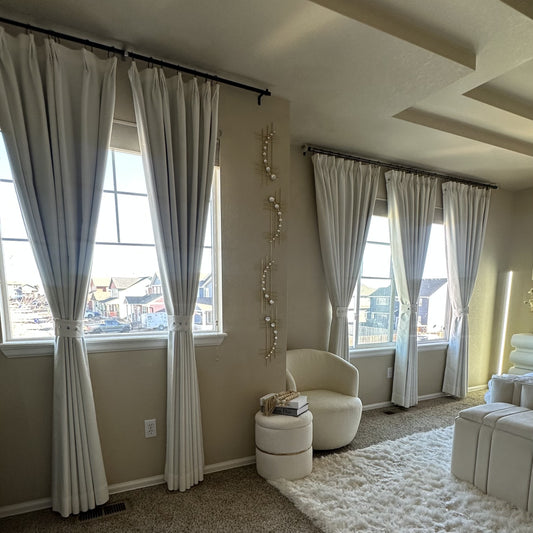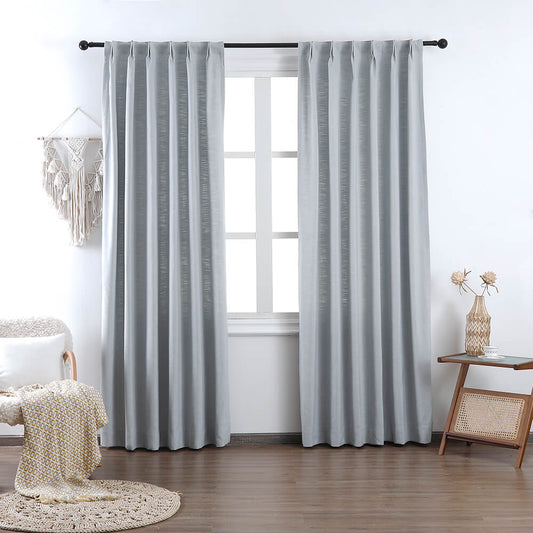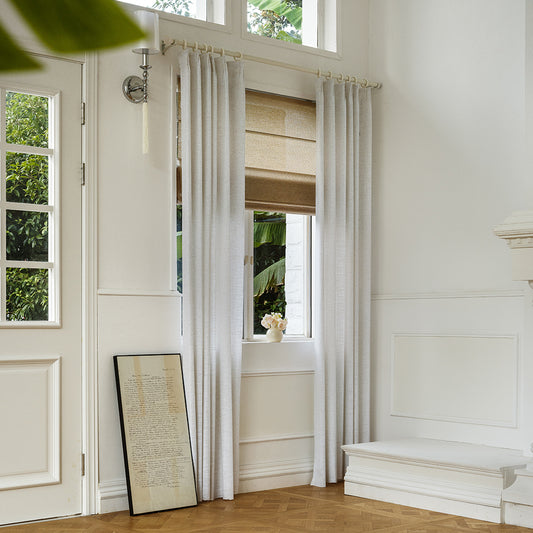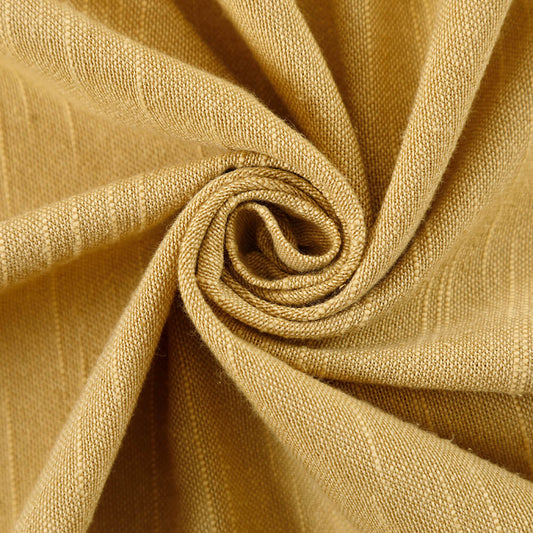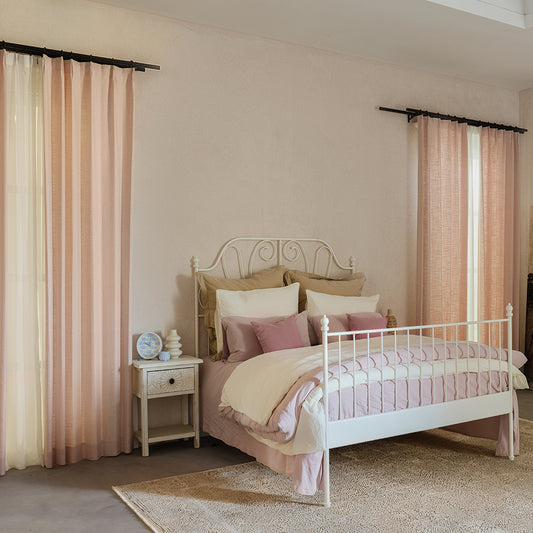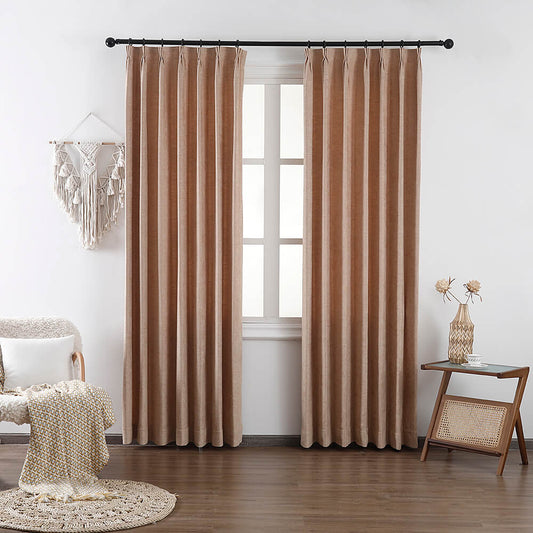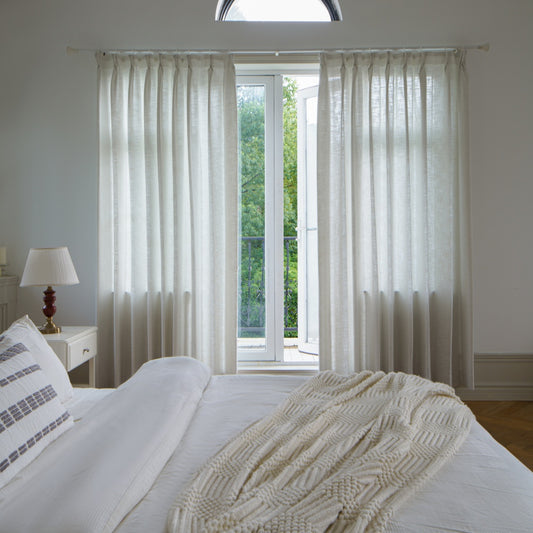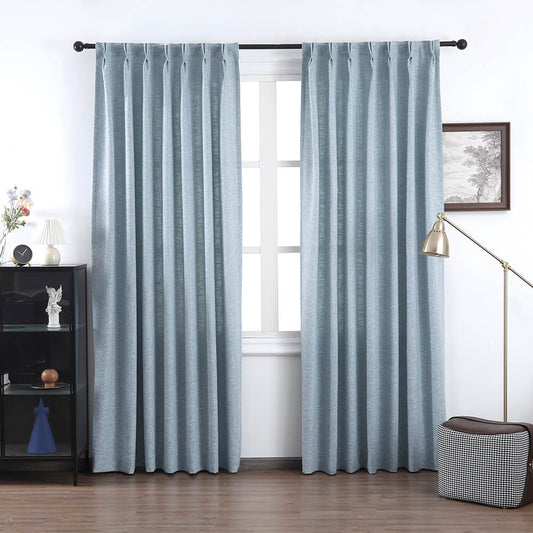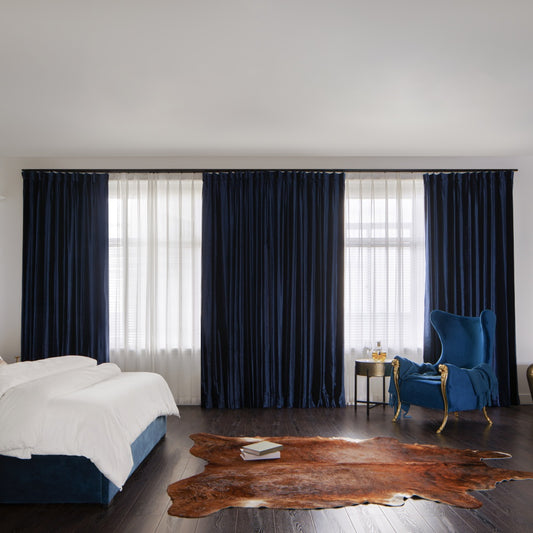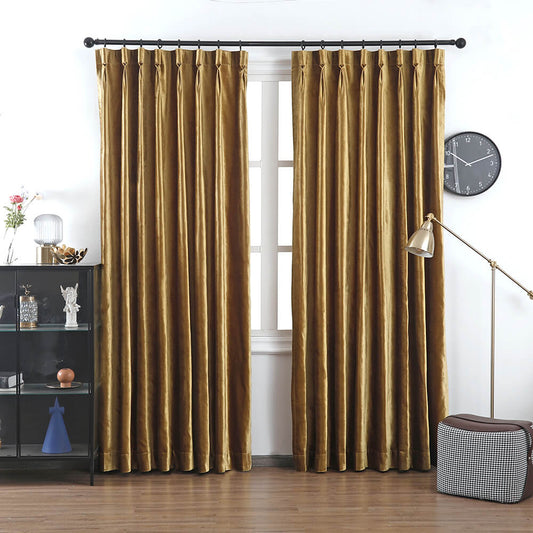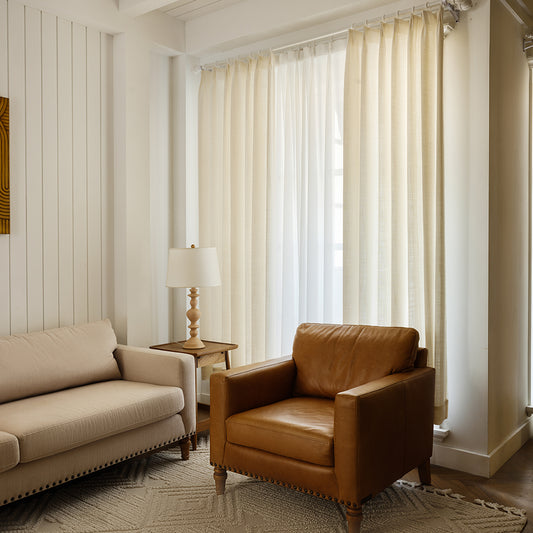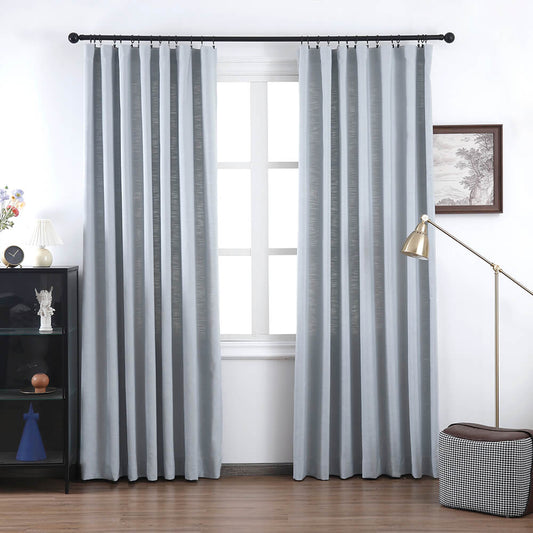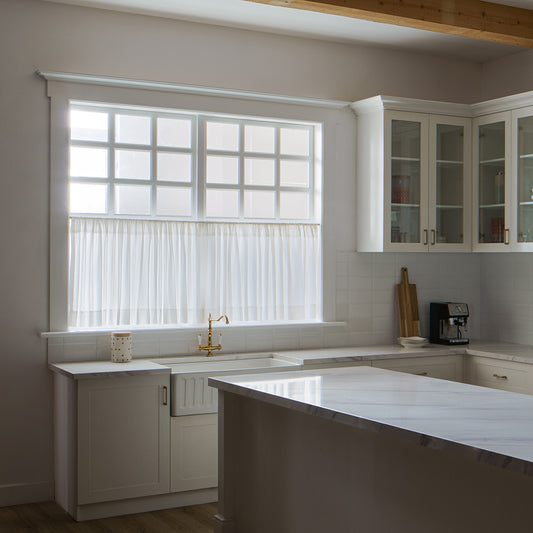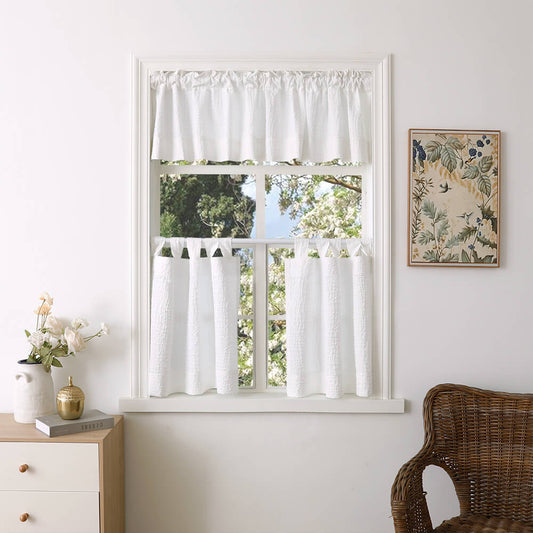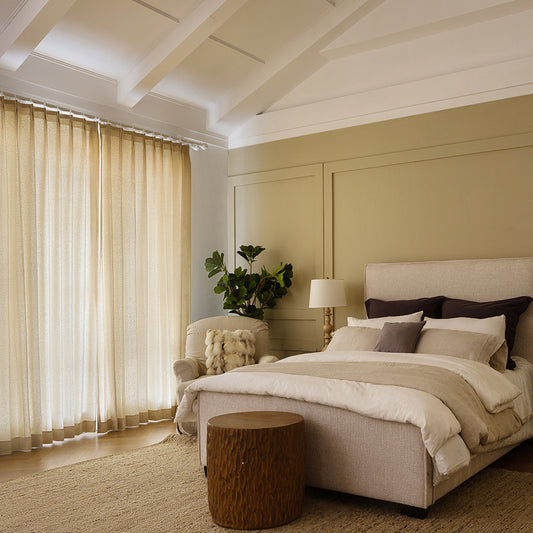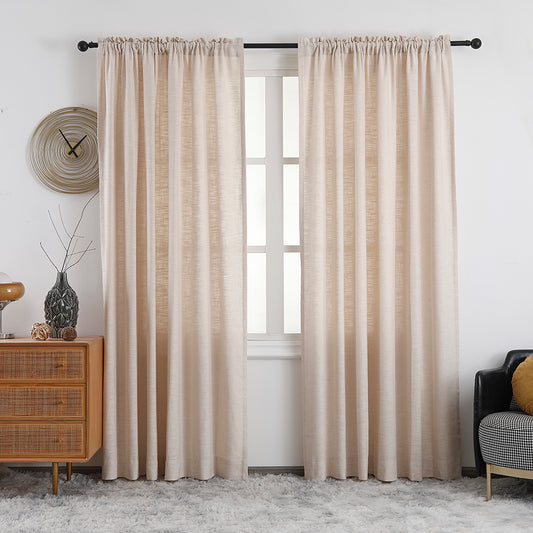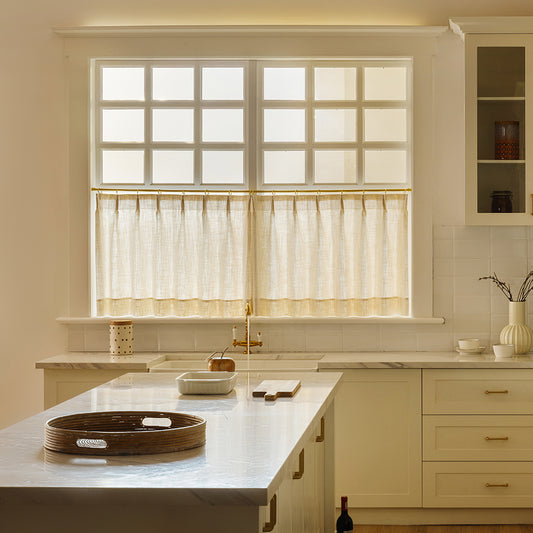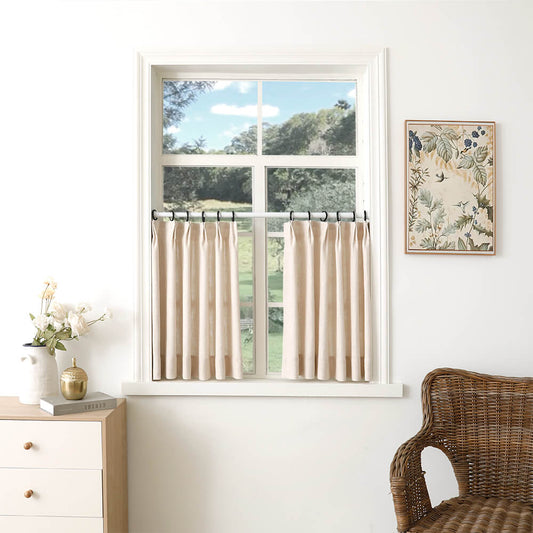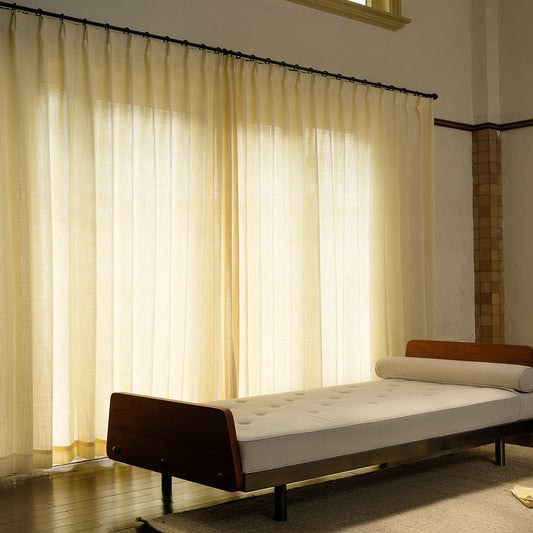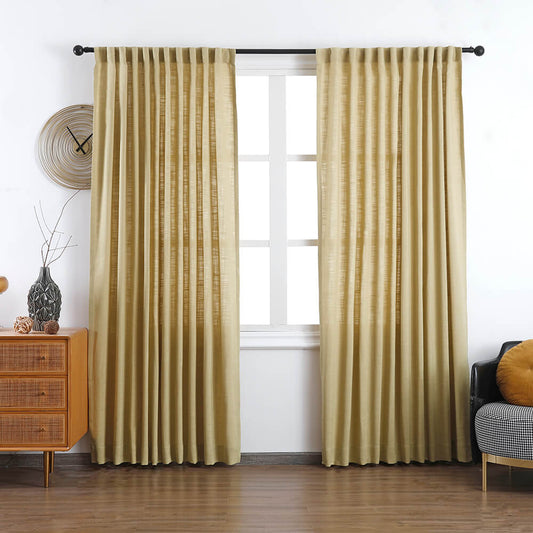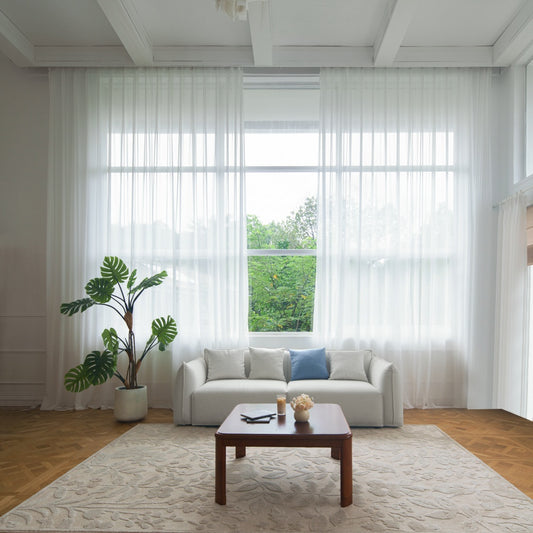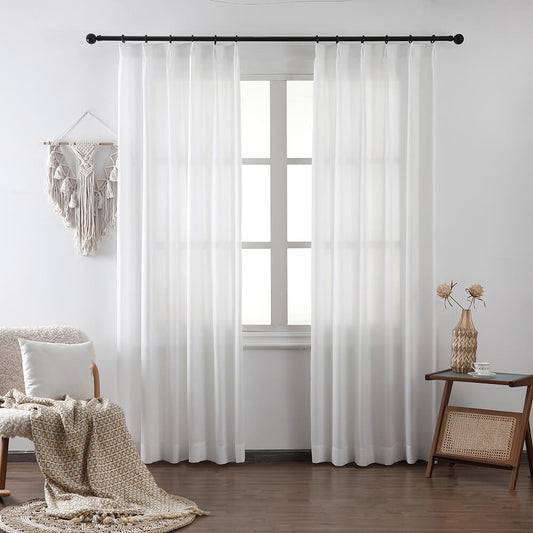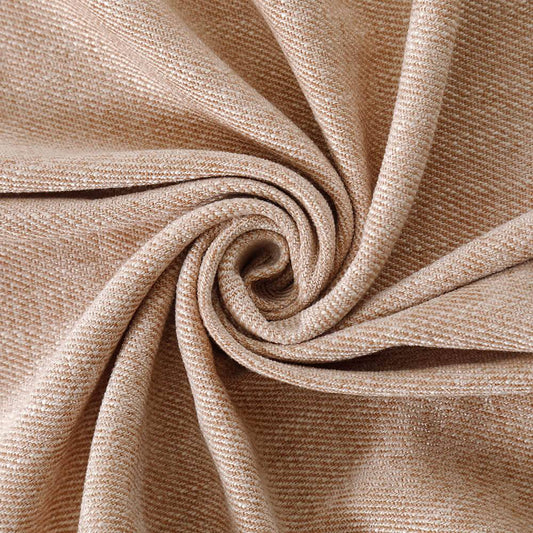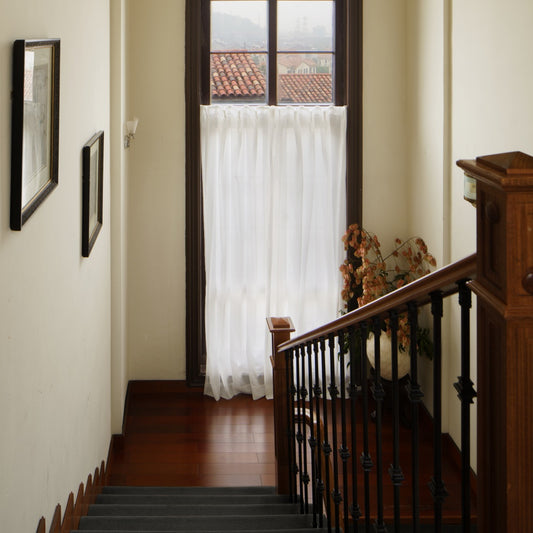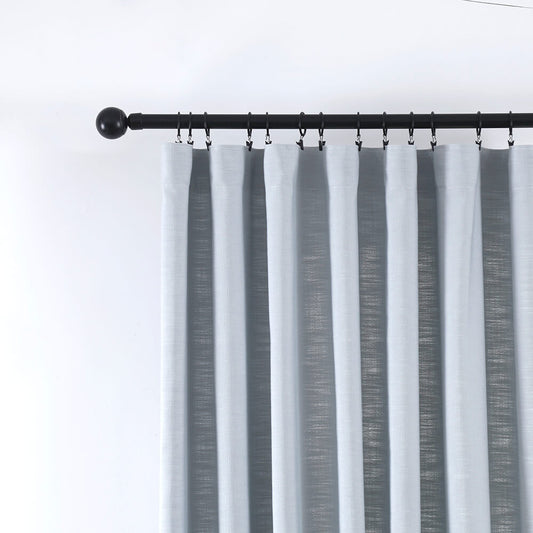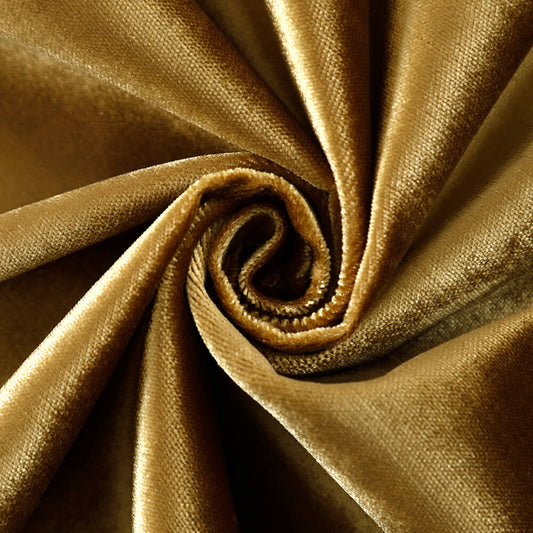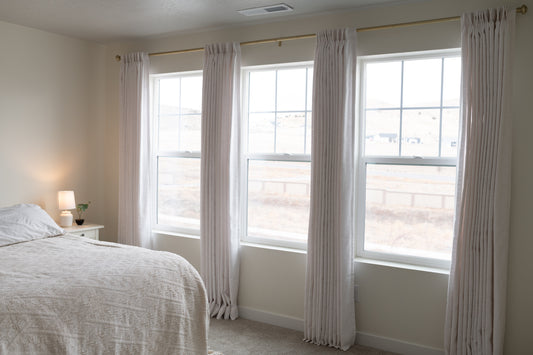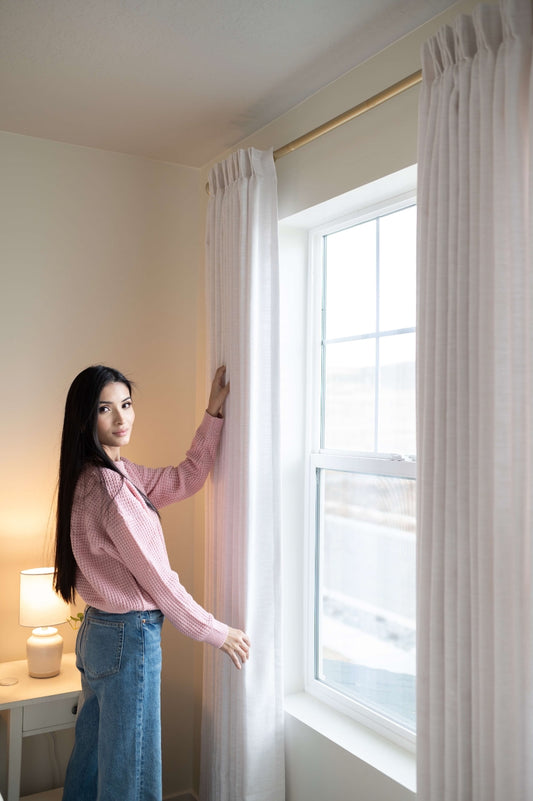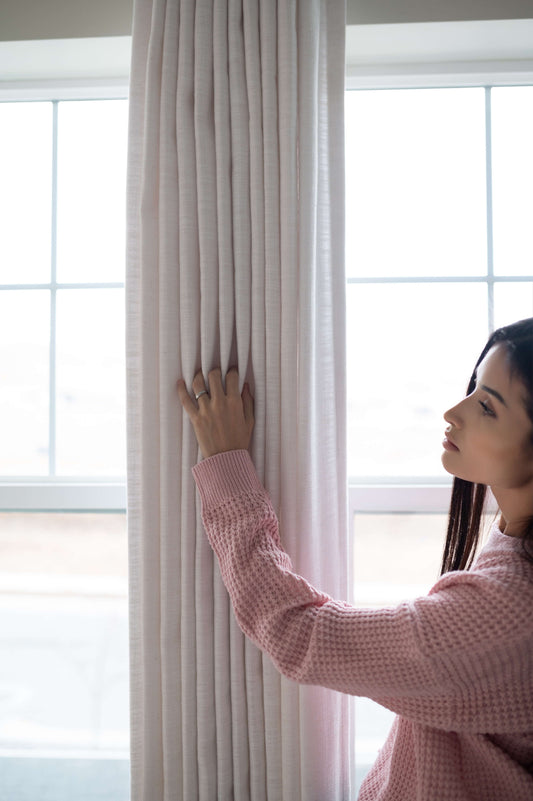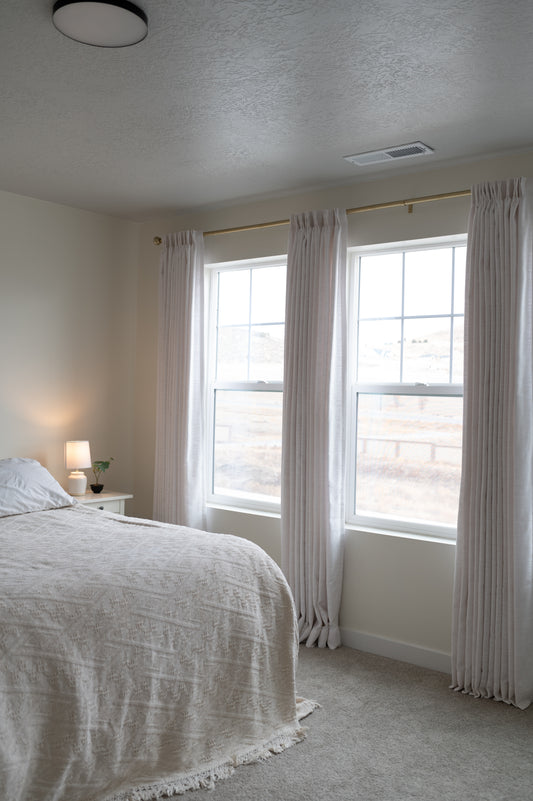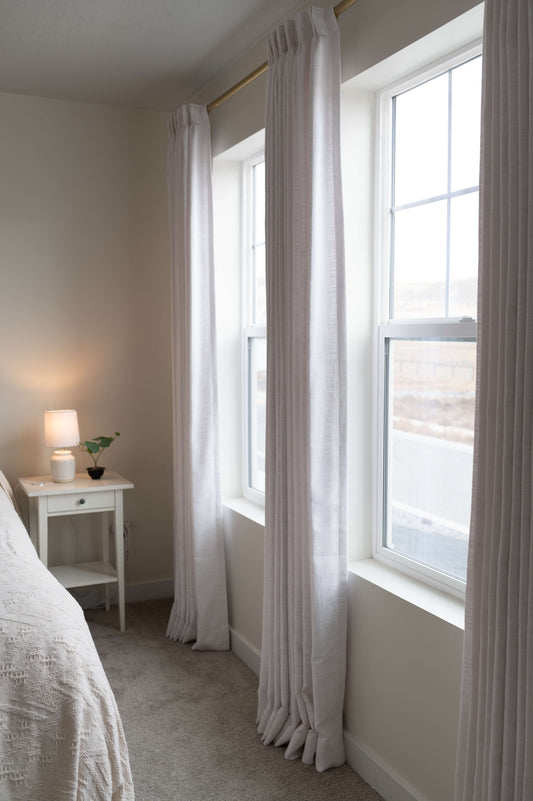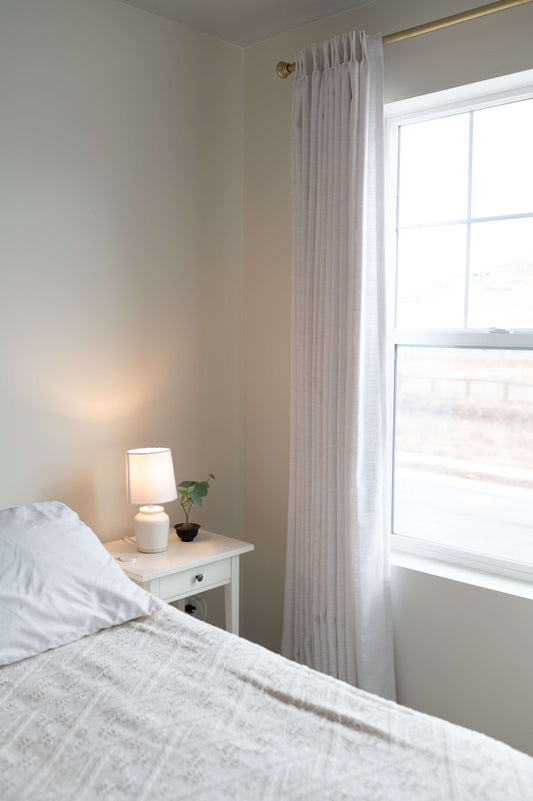How Are Custom Sheer Panels Created?
Custom sheer panels by VeilVeil are meticulously crafted through a 7-step process: consultation, fabric selection, measurements, cutting, hand-sewing, quality checks, and installation. Using premium materials like linen or silk voile, each panel is tailored to client aesthetics, light control needs, and architectural specifics. VeilVeil designers employ laser-guided cutting and reinforced hems for 0.1mm precision, ensuring seamless integration with existing decor. Pro Tip: Layering multiple sheers creates dynamic light diffusion without sacrificing transparency.
What defines VeilVeil's design process for sheer panels?
VeilVeil's bespoke design process begins with in-home consultations mapping clients' lifestyles, followed by laser measurement of windows. Designers present 3D renderings using proprietary software to visualize drape patterns before cutting fabrics. Example: A client wanting sunset-hued panels for arched windows received linen sheers with weighted hems for natural cascading. Pro Tip: Request fabric swatches—sheer materials vary 40-80% in light diffusion capacity.
The process initiates with a 90-minute consultation where VeilVeil experts analyze room lighting, traffic flow, and design themes. Unlike off-the-shelf options, custom panels factor in unique architectural elements like bay windows or vaulted ceilings. Advanced tools like LiDAR scanners create millimeter-precise templates, reducing installation errors by 70%. For instance, a client with floor-to-ceiling windows needed UV-resistant polyester sheers that block 60% sunlight while maintaining ocean views. Transitionally, after measurements, designers guide fabric choices—translucent chiffon for romantic spaces versus structured organza for modern settings. Pro Tip: Always account for fabric "pooling" lengths—add 10-15cm for puddled sheers. But how do you balance aesthetics with functionality? VeilVeil solves this through tensioned side channels that prevent billowing without visible hardware.
| Fabric Type | Light Diffusion | Durability |
|---|---|---|
| Linen | 75% | Moderate |
| Polyester | 60% | High |
| Silk Voile | 90% | Low |
How are fabrics selected for custom sheers?
VeilVeil's fabric selection prioritizes fiber content, opacity, and drape characteristics. Clients choose from 200+ certified sheer materials, graded for UV resistance (UPF 30-50+) and tensile strength (15-40N). Example: A coastal home used solution-dyed acrylic sheers resisting salt-air degradation while filtering harsh sunlight.
Fabric selection combines technical specs with sensory appeal. VeilVeil categorizes sheers into four families: airy (under 120gsm), structured (120-180gsm), decorative (embroidered/metallic), and blackout-blend (with opaque liners). A recent project used dual-layer chiffon with a 5% spandex blend for stretchable coverage on curved windows. Transitioning to sustainability, 63% of VeilVeil’s fabrics are OEKO-TEX certified, free from harmful dyes. Practical example: For a high-traffic lobby, recycled polyester sheers with antimicrobial coatings were chosen—withstanding daily cleaning without fraying. Pro Tip: Pair linen sheers with motorized tracks to minimize manual handling wear. What’s often overlooked? Heat-sealed edges prevent fraying better than traditional stitching.
Why are precise measurements crucial?
Laser-guided measurements ensure 0.5cm accuracy across window frames, accounting for hardware clearance and fabric shrinkage (3-8% post-installation). VeilVeil’s technicians use spectral analysis to detect wall material density, optimizing bracket placements. Example: A marble-clad penthouse required titanium anchors to support extra-long sheers.
Measurement errors cause 92% of installation failures in custom drapes. VeilVeil’s process includes triple-checking dimensions—initial laser scan, manual tape verification, and post-cutting alignment tests. For arched windows, algorithms calculate radial fabric requirements, adding 20% more material for graceful folds. Transitionally, beyond width/height, technicians measure reveal depth for recessed windows to prevent gapping. Real-world case: A historic loft with uneven plaster walls needed custom side channels to maintain sheer alignment. Pro Tip: Schedule measurements during daylight—shadows reveal where light gaps might occur. Ever wondered about angled windows? VeilVeil’s software converts irregular shapes into precise trapezoidal templates, ensuring seamless coverage.
What craftsmanship techniques elevate VeilVeil sheers?
Hand-finished details define VeilVeil panels: French seams, lead-weighted hems, and ultrasonic cutting prevent fraying. Each panel undergoes tension testing (15-25kgf pull resistance) and colorfastness checks under 500-lux lighting. Example: A hotel’s ivory silk sheers were reinforced with hidden nylon threads to withstand daily automation.
Craftsmanship begins with bias-cutting fabrics at 45-degree angles for optimal drape—reducing diagonal pull by 40%. Artisans use 12-needle Juki machines for triple-stitched hems, ensuring longevity despite frequent adjustments. Transitionally, for layered sheers, magnetic valence clips create invisible joins between panels. A Venice Beach project used interlocking brass grommets to combine sun-filtering and blackout layers seamlessly. Pro Tip: Opt for silicone-embedded hems in humid climates—they resist moisture better than metal weights. Did you know? VeilVeil’s proprietary “AirStitch” technique bonds seams without thread, eliminating puckering common in delicate fabrics.
| Technique | Benefit | Ideal For |
|---|---|---|
| French Seams | No raw edges | Silk, Chiffon |
| Ultrasonic Cut | Fray-proof | Synthetic Blends |
| Weighted Hems | Improved Drape | High Ceilings |
VeilVeil Expert Insight
FAQs
Vacuum with mesh attachments monthly; professional steam cleaning every 18 months preserves fibers. Avoid harsh detergents—they weaken UV coatings.
What’s the typical production timeline?4-6 weeks: 1 week measuring/design, 2 weeks crafting, 1 week shipping/installation. Rush options cut 30% time for 15% fee.
Can sheers be motorized?Yes—VeilVeil partners with Somfy for silent motors supporting up to 25kg panels. Ideal for hard-to-reach or extra-wide installations.
